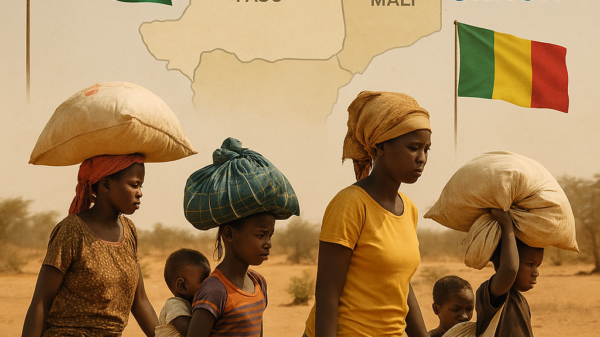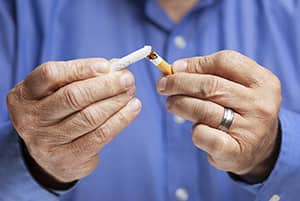The World Health Organisation (WHO) and STOP, a global tobacco industry watchdog, have launched “Hooking the next generation,” a report highlighting how the tobacco and nicotine industry designs products.
WHO said this in a statement made available on Thursday.
According to it, the launch comes just ahead of World No Tobacco Day marked on May 31, where WHO is amplifying the voices of young people who are calling on governments to protect them from being targets of the tobacco and nicotine industry.
“Hooking the next generation,” a report highlighting how the tobacco and nicotine industry designs products, implements marketing campaigns and works to shape policy environments to help them addict the world’s youth,” it said.
It said that the report showed that globally an estimated 37 million children aged 13–15 years use tobacco, and in many countries, the rate of e-cigarette use among adolescents exceeds that of adults.
The statement said that in the WHO European Region, 20 per cent of 15-year-olds surveyed reported using e-cigarettes in the past 30 days.
“Despite significant progress in reducing tobacco use, the emergence of e-cigarettes and other new tobacco and nicotine products present a grave threat to youth and tobacco control.
“Studies demonstrate that e-cigarette use increases conventional cigarette use, particularly among non-smoking youth, by nearly three times,” it said
Dr Tedros Ghebreyesus, WHO Director-General said that history was repeating, as the tobacco industry tried to sell the same nicotine to the children in different packaging.
Ghebreyesus said these industries are actively targeting schools, children and young people with new products that are essentially a candy-flavoured trap.
” How can they talk about harm reduction when they are marketing these dangerous, highly-addictive products to children.
“These industries continue to market their products to young people with enticing flavours like candy and fruit. Research in the US found that more than 70 per cent of youth e-cigarette users would quit if the products were only available in tobacco flavour,” he said.
Dr Ruediger Krech, Director, WHO Director of Health Promotion said that
these industries are intentionally designing products and utilizing marketing strategies that appeal directly to children.
Krech said the use of child-friendly flavours like cotton candy and bubblegum, combined with sleek and colourful designs that resemble toys, is a blatant attempt to addict young people to these harmful products.
“These deceptive tactics highlight the urgent need for strong regulations to protect young people from a lifetime of harmful dependence,” he said.
According to him, WHO urges governments to protect young people from the uptake of tobacco, e-cigarettes and other nicotine products by banning or tightly regulating these products.
He said that WHO recommendations include creating 100 per cent smoke-free indoor public places, banning flavoured e-cigarettes, bans on marketing, advertising and promotion.
Others, he said, were higher taxes, increasing public awareness of the deceptive tactics used by the industry and supporting youth-led education and awareness initiatives.
Mr Jorge Alday, Director, STOP at Vital Strategies said that addicted youth represent a lifetime of profits to the industry.
“That’s why the industry aggressively lobbies to create an environment that makes it cheap, attractive and easy for youth to get hooked.
“If policy makers don’t act, current and future generations may be facing a new wave of harms, characterized by addiction to and use of many tobacco and nicotine products, including cigarettes,” he said.
According to him, youth advocates around the world are taking a stand against the tobacco and nicotine industry’s destructive influence and manipulative marketing.
He said that they are exposing these deceptive practices and advocating for their own tobacco-free future.
Youth organizations from around the world participated in the latest session of the Conference of the Parties to the WHO Framework Convention on Tobacco Control (COP10) to deliver a powerful message to policy makers.
“Future generations will remember you as the ones who protected them or the ones who failed them and put them in danger,” he said.
The statement said that WHO boss recognised the following youth organisations among the 2024 World No Tobacco Day Awards:
“Thailand Youth Institute, Kingdom of Thailand, Tobacco Abstinence Club, Federal Republic of Nigeria and Campaign for Tobacco-Free Kids, Argentine Republic,” it said.
According to it, these inspiring young leaders are protecting their generation from an industry that sees them as profits, not people.




























